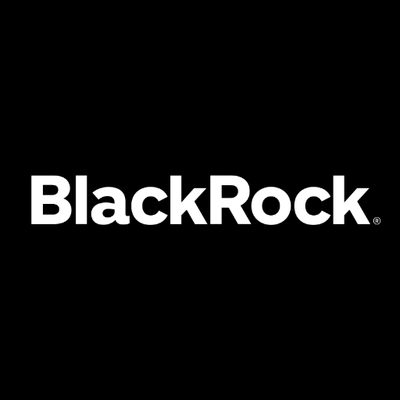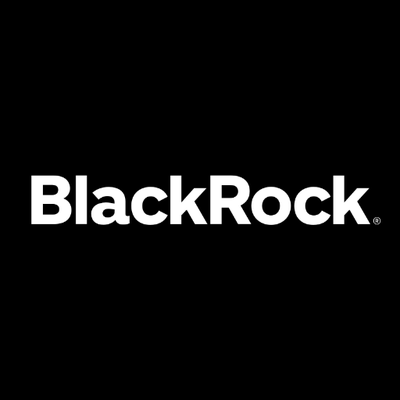BlackRock Greater Europe Investment Trust plc (LON:BRGE) has announced it latest portfolio update.
All information is at 31 October 2023 and unaudited.
To discover more about the BlackRock Greater Europe Investment Trust click here
Performance at month end with net income reinvested
| OneMonth | ThreeMonths | OneYear | ThreeYears | Launch(20 Sep 04) | |
| Net asset value (undiluted) | -4.1% | -12.4% | 10.5% | 15.7% | 604.2% |
| Share price | -5.6% | -14.5% | 7.4% | 11.5% | 555.9% |
| FTSE World Europe ex UK | -3.0% | -6.4% | 12.0% | 32.5% | 365.0% |
Sources: BlackRock and Datastream
At month end
| Net asset value (capital only): | 506.31p |
| Net asset value (including income): | 511.56p |
| Share price: | 471.00p |
| Discount to NAV (including income): | 7.9% |
| Net gearing: | 6.7% |
| Net yield1: | 1.4% |
| Total assets (including income): | £515.7m |
| Ordinary shares in issue2: | 100,812,161 |
| Ongoing charges3: | 0.98% |
1 Based on a final dividend of 4.85p per share for the year ended 31 August 2022 and an interim dividend of 1.75p per share for the year ending 31 August 2023.
2 Excluding 17,116,777 shares held in treasury.
3 The Company’s ongoing charges are calculated as a percentage of average daily net assets and using the management fee and all other operating expenses excluding finance costs, direct transaction costs, custody transaction charges, VAT recovered, taxation, write back of prior year expenses and certain non-recurring items for the year ended 31 August 2022.
| Top 10 holdings | Country | Fund % |
| Novo Nordisk | Denmark | 9.3 |
| RELX | United Kingdom | 6.6 |
| ASML | Netherlands | 6.1 |
| LVMH | France | 6.0 |
| Hermès | France | 4.3 |
| BE Semiconductor | Netherlands | 4.0 |
| Safran | France | 3.8 |
| STMicroelectronics | Switzerland | 3.7 |
| Ferrari | Italy | 3.7 |
| DSV Panalpina | Denmark | 3.4 |
Commenting on the markets, Stefan Gries and Alexandra Dangoor, representing the Investment Manager noted:
During the month, the Company’s NAV fell by 4.1% and the share price declined by 5.6%. For reference, the FTSE World Europe ex UK Index returned -3.0% during the period.
European ex UK markets lost ground for the third consecutive month. So far, the Q3 earnings season has seen more earnings downgrades than the market had anticipated despite consensus numbers having been revised down ahead of results season. Activity levels appear to be slowing in Europe and the US. Markets have been extremely volatile and investors have been nervous which has led to extreme share price reactions on company updates. The market is still going through an adjustment process of what it means to operate in a higher rate environment.
Global bond markets continued to sell off with the 10-year German Bund yield rising to its highest level since 2011 and the US 10-year Treasury to its highest level since 2007. The war in the Middle East has further increased geopolitical risks and put a risk premium on equities. As with all geographical risks, we monitor the situation very carefully.
Towards the end of the month, inflation data came through better than expected: the Eurozone CPI fell to 2.9% in October (versus 3.1% expected) which was the lowest number since mid-2021.
Utilities delivered returns in positive territory while all other sectors fell in absolute terms. Cyclical sectors sold off, as did health care given a number of stock specific earnings misses in the sector.
The Company underperformed its reference index during the month, driven by negative sector allocation and stock selection.
In sector terms, the Company’s lower exposure to energy was negative as the war in the Middle East moved oil prices higher throughout the period. The Company’s zero exposure to utilities was also negative for active returns as the sector held up better than the falling market.
The Company benefited from an overweight allocation to IT as well as an underweight to health care, although stock selection was challenged in those sectors.
The largest drag on performance came from the industrials sector with a position in DSV being the largest detractor. Shares slipped as the company a) changed the CEO and b) announced a $10bn exclusive logistics joint venture (JV) with Saudi’s NEOM city project. The JV is focused on providing logistic services for NEOM for decades to come and DSV have a 49% ownership. These announcements led to concerns over the capital intensity of the project, as well as a shift in business strategy. Having discussed these issues in great detail with management, we are somewhat reassured that the deal is financially solid and DSV have protection mechanisms in place should the project disappoint. However, there are a number of political and ESG risks, which means we are reviewing this position carefully.
Negative contribution during the month came from the health care sector. Shares in Lonza dropped after management significantly lowered earnings expectations for 2024. The drug manufacturer warned that Moderna’s decision to ramp down production of their Covid vaccine due to low demand, would materially impact next year’s revenue. Next year’s margin is now expected in the high 20s rather than low 30s. Some of this can be attributed to mis-management, but we also recognise that unlike in sectors such as industrials, the life science and pharma industry is not used to big inventory cycles and the post-Covid period has been very unique. We reduced the position reflecting a weaker earnings outlook and lower conviction.
Disappointing news also came from Sartorius Stedim, as they downgraded full year targets and reported lower than expected sales and earnings for the first nine months of the year. While management believe they have started to see some signs of customer order recovery, the destocking cycle is materially longer than investors expected and we sold the remaining position.
A holding in STMicro detracted from relative returns. The company’s Q3 results showed a small beat on sales and margins compared to consensus, but shares sold off on a marginally lower guidance for next quarter. However, in the same sector, shares in BESI and ASML contributed positively.
The Company’s position in Novo Nordisk was amongst the top contributors to active returns in October as the company released a number of encouraging updates. Positive efficacy results in their phase 3 FLOW trial led to an early completion, with full results now expected in H1 2024. This trial is looking at injectable semaglutides as an adjunct to standard of care for kidney disease. Following the successful SELECT trial earlier this year, looking at material adverse cardiovascular events, the FLOW trial is another example highlighting the breadth this class of drug touches beyond the headline use in weight loss. The company also released a positive pre-announcement that saw their full year 2023 sales outlook raised to +32-38% (previously +27-33%) and operating profit growth guidance raised to +40-46% (previously +31-37%).
The Company’s luxury positions contributed positively to relative performance over the month, with both Hermès and Ferrari outperforming. Hermès posted a strong Q3 result with sales growth beats in most divisions, and in every region, leading to +15.6% group level growth versus consensus at +13.6%. Meanwhile, Ferrari shares were higher on anticipation of a positive update when the company reports in early November. Not owning Mercedes was also positive.
Finally, data solutions provider RELX was also amongst the top contributors to relative returns, proving its worth as a defensive asset. Furthermore, RELX delivered robust Q3 results and reiterated guidance.
Outlook
The noise around market moves seems to increase with every passing year. We make no attempt to predict to the basis point next quarters’ GDP, inflation, or unemployment number. Nor do we pay much heed to top-down indicators or what they may reveal about the health of the global economy. From our point of view, the world finds itself currently in the midst of several transitions: Covid to post Covid, inflation to disinflation, low interest rates to high interest rates. These dynamics must be considered when assessing the health of the global economy and the prospects for equity markets. Various end markets may continue to imply weak demand as inventories are run down, while others – perhaps those associated with Chinese real estate – may have more prolonged problems. But assessing the economy from the bottom-up, company by company, we see no reason for investors with a reasonable time horizon to be alarmed. Corporate balance sheets are strong after 15 years of deleveraging, margins remain at healthy levels and we may be at the foothills of an increase in capex spending resulting in a ‘modern era industrial revolution’. Similarly, household debt relative to assets is low in large economies, interest rate sensitivity is lower than in previous cycles and real wages are growing.
As investors we must be forward looking, we must anticipate areas of enduring demand and identify those special companies whose characteristics enable them to capitalise on this demand and, in doing so, benefit their stakeholders and shareholders. We remain optimistic about the prospects of companies held in our portfolio.
To discover more about the BlackRock Greater Europe Investment Trust click here





































